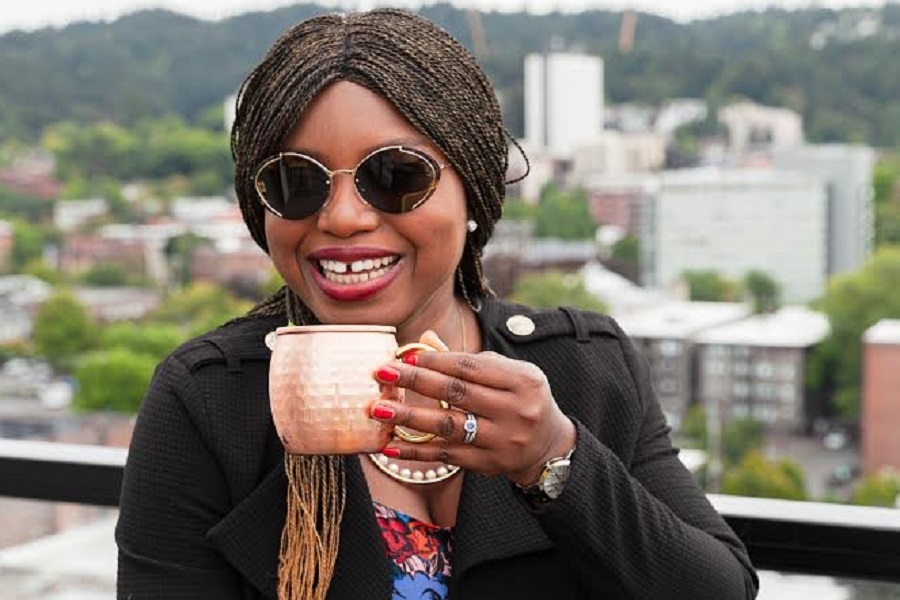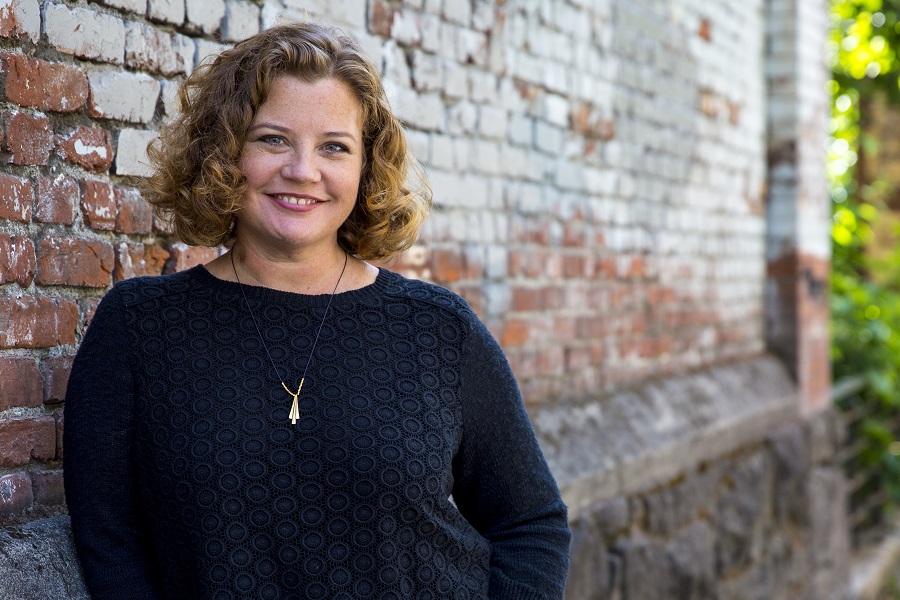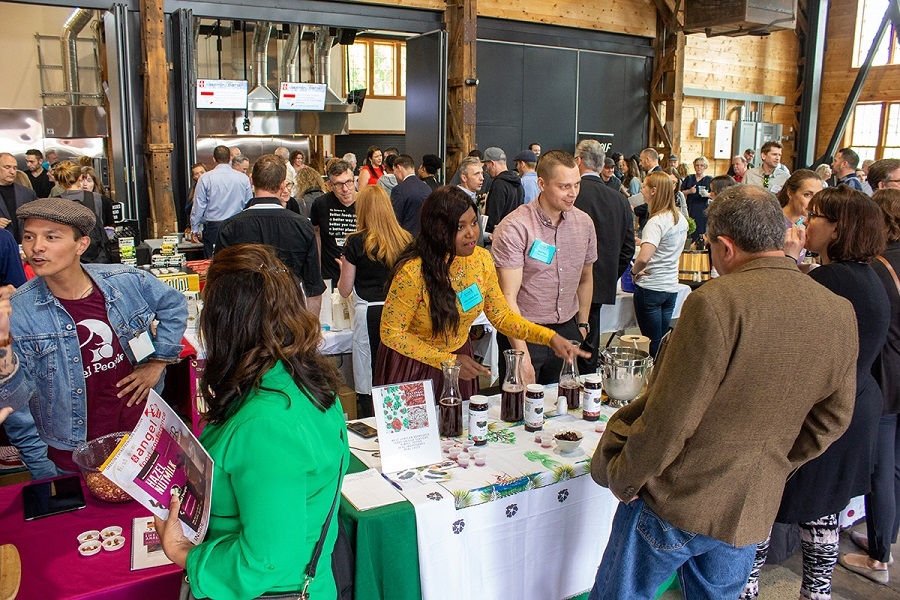The Oregon Entrepreneurs Network acknowledges investor bias marred previous events
Affouet Price considers herself a “flavor ambassador.” Hailing from the Ivory Coast, she has made it her mission to bring West African flavors to the U.S. In 2019 Price founded Hibisbloom, a company that makes hibiscus-flavored drinks, after her beverage placed in the top six at the Oregon Entrepreneurs Network’s 2019 Angel Food Conference & Food Fair.
This year she received a contract with Market of Choice and New Seasons Market to sell her drinks in stores. She is also partnering with an ice cream manufacturer to create a flavor using hibiscus syrup.
Price knows firsthand the challenges that can face female business owners and business owners of color. Her previous career ended because her employer would not make adjustments to her schedule during her pregnency.

Affouet Price sips her company’s beverage. Photo: Hibisbloom
The opportunity provided by the Oregon Entrepreneurs Network, which mentored her with business classes and connected her with partners and investors, has been “invaluable” to her success, she says.
At the conference, she found support among the other business owners of color, although there were only three of them.
This year’s conference, which holds its annual Pitchfest on September 18, has seen more concentrated effort to not only include women and people of color but also to guide investors toward making more equitable decisions.
In addition to signing an online pledge committing to racial justice, the network held a discussion on implicit bias during the first investor meeting. The discussion highlighted, among other things, the tendency among investors of all kinds to ask different questions of founders who are women and people of color than those asked of white men.
Oregon Entrepreneurs Network executive director Amanda Oborne admits that in the past the organization has not had a good track record when it comes to inclusion.
Despite measurable progress, she says the network still has a long way to go, and that efforts this year are “nowhere near enough,” to make up for an exclusionary past.

Oregon Entrepreneurs Network executive director Amanda Oborne. Photo: Oregon Entrepreneurs Network
“Oregon Entrepreneurs Network has not historically been a diverse network,” says Oborne. “It has been my goal since the day I joined to make it a more welcoming, responsive and supportive place for people of color. We have a really long way to go, but we have taken first steps.”
This year, 36% of the Angel Food Network participants identify as people of color and 60% as non-male, something Oborne considers a “baseline.”
All printed materials have been translated into Spanish, and parts of the event are dedicated to raising awareness for Tender Table, a community-centered platform for and by women, trans and nonbinary people who are Black, Indigenous or people of color seeking to “reclaim and celebrate our identities, narratives, and traditions through storytelling and food.”
Even the event’s mascot Loafy, a loaf of bread with a gentle face and a halo, identifies as non-binary, according to Oborne.
Business owners of color and women-owned businesses face a broader set of challenges on their road to success. In addition to discrimination and lack of access to capital, networks can support owners by engaging in cross-cultural dialogue, which can be important for marketing.
RELATED STORY: Why Business Owners of Color Are More Impacted By Covid-19
“In the Ivory Coast, when we think of hibiscus, we think, ‘you drink this and then you get happy,’” says Price. “We don’t necessarily think, ‘drinking this will help lower your blood pressure.’”
According to Oborne, this is why inclusivity is crucial in support networks like the Oregon Entrepreneurs Network.
“Food is what brings us together,” says Oborne. “People preparing culturally inspired products is a great way to share traditions and food cultures. It’s a way for everyone to have a seat at the table and feel welcome at the table.”
To subscribe to Oregon Business, click here.






